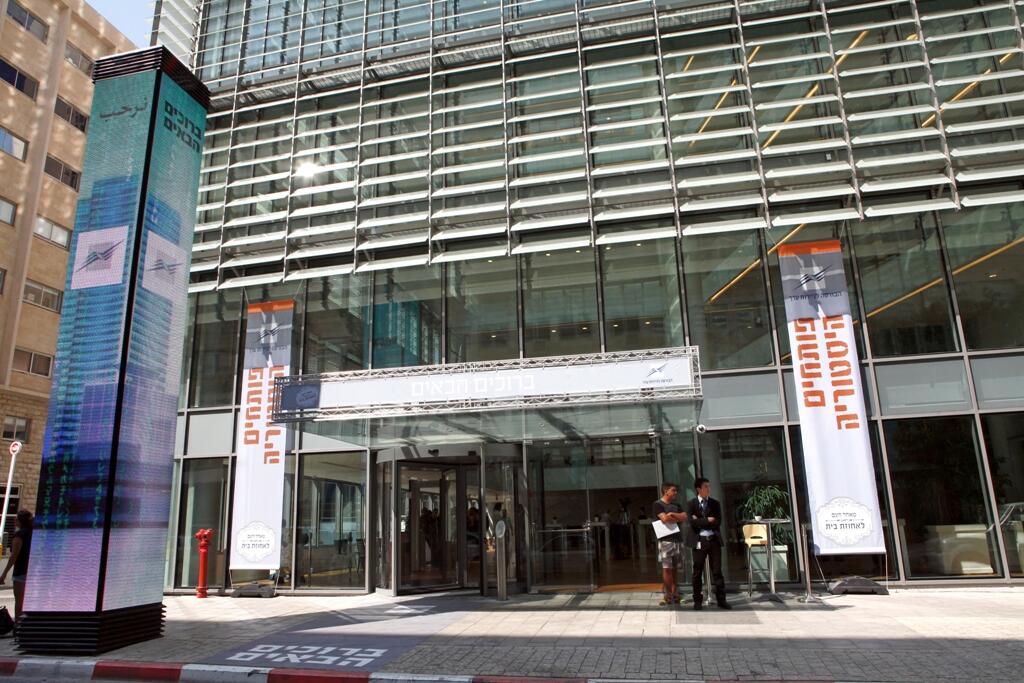Finance Minister Bezalel Smotrich announced on Monday, during his visit to the Tel Aviv Stock Exchange, that the exchange will shift its trading days to Monday through Friday, aligning the Israeli capital market with international standards. For years, the Tel Aviv Stock Exchange has been one of the few in the world to operate on Sundays while remaining closed on Fridays. Under the new plan, Friday trading will end at 2:00 p.m. According to sources at the stock exchange, the transition is scheduled to begin in January 2026.
Securities trading in Israel dates back to the 1930s, with the Tel Aviv Stock Exchange being the only exchange operating in the country. Since 2019, the exchange has been a publicly traded company listed on its own exchange. Its 25 members include 11 Israeli banks, 3 foreign banks, 8 investment firms and 3 additional international members. Currently, 548 companies are listed on the Tel Aviv Stock Exchange, with a total market value slightly exceeding $273.6 billion.
2 View gallery


Minister Smotrich (second from the left) with heads of the TA Stock Exchange
(Photo: Liel Simon)
For some time now, the 25 members of the exchange have supported the transition from the current Sunday-to-Thursday trading schedule to Monday-through-Friday trading.
The move to shift trading days is part of a broader effort led by the Ministry of Finance, the Bank of Israel, the Israel Securities Authority and the Tel Aviv Stock Exchange to align Israeli financial regulations and practices with the international standards of developed economies and thriving capital markets. Another key objective of the initiative is to include the Israeli stock market in leading global indices. In the past, Israel’s exclusion from these indices was attributed to its trading days being out of sync with global markets.
The goal: Attracting foreign investors
Attempts to change trading days were made in the past but failed due to opposition from banks citing labor relations and cost concerns. What enabled the transition this time was the support of the Bank of Israel, followed by backing from the banks and the chairman of the Israel Securities Authority, who acknowledged that the change would attract more foreign investors to the Tel Aviv Stock Exchange.
Approximately six months ago, the Israel Securities Authority, the Bank of Israel and the Tel Aviv Stock Exchange issued a request for feedback from investors, presenting several options for changing trading days. Those investors, particularly the foreign ones, overwhelmingly supported the shift to Monday through Friday. However, one of the barriers to implementing the change has been the challenge of ensuring that Friday trading and post-trading operations do not cause violations of the Sabbath, particularly for workers who might struggle to return home before the Sabbath begins. Adjustments and new procedures are now being developed to ensure Friday trading complies with Sabbath observance.
The initiative has recently garnered widespread support from both local and international market players. Feedback during discussions highlighted significant benefits, including improved accessibility for global investors, increased liquidity and trading volume, and the inclusion of Israeli securities in global indices. The move is expected to significantly enhance the chances of Israeli stocks being incorporated into leading international indices in the future.
“Aligning trading days with those of successful global capital markets is a key part of our vision to strengthen the connection between Israel’s capital market and the global economy,” said Finance Minister Bezalel Smotrich. “This move will make it easier for global investors to access the Israeli market, invest in our attractive local economy without unnecessary barriers, and strengthen the Israeli economy over the long term.”
Get the Ynetnews app on your smartphone: Google Play: https://bit.ly/4eJ37pE | Apple App Store: https://bit.ly/3ZL7iNv
Seffy Zinger, chairman of the Israel Securities Authority, added: “The shift in trading days is a core part of the many initiatives we’ve promoted over the years, reflecting our commitment to aligning local regulations and practices in the Israeli capital market with global standards.”
Ittai Ben-Zeev, CEO of the Tel Aviv Stock Exchange, commented: “During the most challenging and prolonged war in the country’s history, the Israeli stock exchange demonstrated resilience, strength, and impressive growth. This transition to Monday-to-Friday trading will pave the way for greater international investments, enhance the appeal of Israeli companies, and accelerate the growth of the local capital market.”


